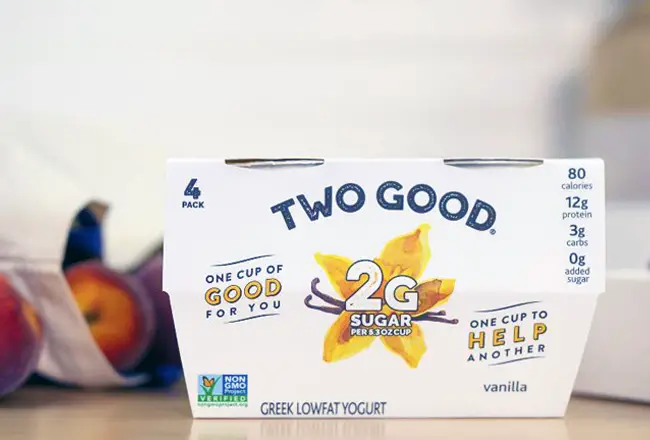Danone plans program to provide 28M meals to the hungry
Danone North America of White Plains this morning announced that on Oct. 1 its brand Two Good Greek Lowfat Yogurt will launch the “One Cup, Less Hunger” program designed to save 46 million pounds of food from being dumped so that 28 million meals can be provided to hungry people.
 Danone said it will save an amount of food from being dumped that equals the amount of the yogurt that’s bought by consumers.
Danone said it will save an amount of food from being dumped that equals the amount of the yogurt that’s bought by consumers.
Danone is partnering with the organizations City Harvest and We Don”™t Waste.
City Harvest is New York’s largest food rescue organization. It projects that by the end of this year, it will have rescued 109 million pounds of food that otherwise would have been wasted and delivered it free of charge to more than 400 food pantries, soup kitchens, community partners and its own mobile markets throughout New York City.
We Don”™t Waste, based in Denver, provides essentially the same services there. Danone North America has an office in Denver.
Danone said that by redirecting this food, the program will help avoid the emission of greenhouse gases that would have resulted as an offshoot of the food being wasted. It said that greenhouse gas emissions are created during the producing, processing, transporting and disposing of food. It said that the amount of food that would be rescued has a greenhouse gas footprint equivalent to the annual impact of more than 10,000 cars, or approximately 5.5 million gallons of gasoline burned.
“We launched our social purpose to support food rescue organizations earlier this year during our Earth Week program, and are committed to expanding the impact our business can make when it comes to food waste and hunger,” said Pedro Silveira, president, U.S. yogurt for Danone North America.
During Earth Week, the TwoGood brand donated $100,000 from profits made at select partner retailers to the two food rescue organizations.
Danone noted that the Covid-19 pandemic has worsened hunger in America. It said that up to 1 out of every 6 Americans could face hunger, an increase from 1 out of every 7 before the pandemic. It reported that an estimated 30% to 40% of the U.S. food supply is wasted.